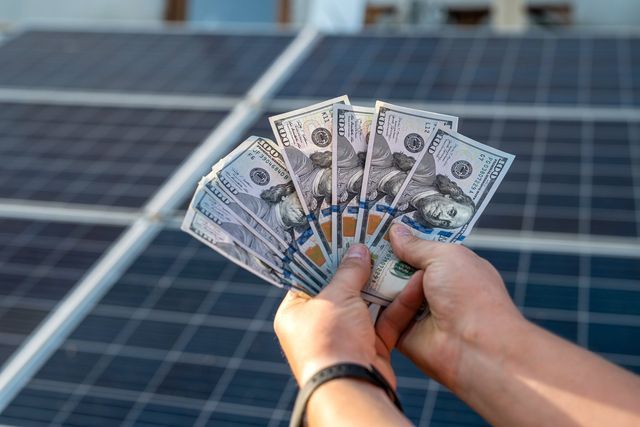As solar technology continues to improve, many homeowners who have installed solar panels may wonder if it is time to upgrade their systems.
There are a variety of factors to think about when deciding whether or not to upgrade your solar system, including your energy needs, the age of your current system, and the available incentives and financing options.
In this article, we will explore these factors and help you decide if upgrading your solar system is right for you.
Energy Needs

The first factor to consider when deciding whether to upgrade your solar system is your current energy needs.
If your household has grown since you installed your solar panels or if you have added new appliances or other energy-intensive devices, you may need to upgrade your system to accommodate the increased energy demand.
Alternatively, if you have reduced your energy usage, you may be able to downsize your solar system.
Another important factor to consider is your energy goals. If your goal is to achieve energy independence or to generate enough electricity to power an electric vehicle, you might need to upgrade your system to a larger size or add battery storage.
On the other hand, if you are happy with your current energy production and do not have any additional energy goals, there may be no need to upgrade your solar system.
Age of Current Solar System

The age of your current solar system is another important point to consider when deciding whether to upgrade.
Solar panels are designed to last for many years, typically 25 years or more, but the performance of the panels can degrade over time.
If your solar panels are more than 10-15 years old, you may notice a decrease in their performance, which could be a sign that it is time to upgrade.
Newer solar panels are often more efficient than older ones, which means that they can produce quite abit more electricity from the same amount of sunlight.
They may also be more durable and resistant to weather damage. Upgrading to newer panels could help you generate more electricity and reduce your maintenance costs in the long run.
Incentives and Financing Options

You should consider the available incentives and financing options when deciding whether to upgrade your solar system.
Many states and utility companies offer incentives and rebates for homeowners who install or upgrade solar panels, which can help offset the cost of the upgrade.
Additionally, there are a variety of financing options available, including loans and leases, that can make it easier to afford an upgrade.
Before making your decision, it is important to research the available incentives and financing options in your area and to compare the costs and benefits of upgrading versus continuing to use your current system.
In some cases, it may be more cost-effective to wait until your current system reaches the end of its useful life before upgrading.
Should I upgrade my solar system?
Besides the above points, here are some more questions you can ask yourself which may help with your decision on whether or not you should upgrade your system or not.
- How has the climate in your area changed since you installed your solar panels? If your area has become cloudier or experiences more extreme weather, you may need to upgrade your system to ensure you are still generating enough electricity.
- Have you noticed any physical damage to your solar panels or other components of your system? If so, it may be time to upgrade to avoid potential safety hazards or further damage.
- What is the current resale value of your home? Upgrading your solar system could increase the value of your home and make it more appealing to potential buyers.
- What are the warranties and guarantees for your current system and any potential upgrades? Understanding the terms of these agreements can help you make an informed decision about whether an upgrade is worth the investment.
- How does your current solar system impact your monthly energy bills? If you are still paying a significant amount for electricity despite having solar panels, upgrading your system could help you save even more money in the long run.
Final Thoughts
In summary, upgrading your solar system is a decision that should be based on your energy needs, the age of your current system, and the available incentives and financing options.
If you have increased your energy usage or have new energy goals, it may be time to upgrade to a larger or more efficient system.
If your current system is more than 10-15 years old, upgrading to newer, more efficient panels could help you generate more electricity and reduce maintenance costs.
Be sure to research the available incentives and financing options in your area before making a decision. Ultimately, the decision to upgrade your solar system should be based on what makes the most sense for your individual situation and goals.







































































